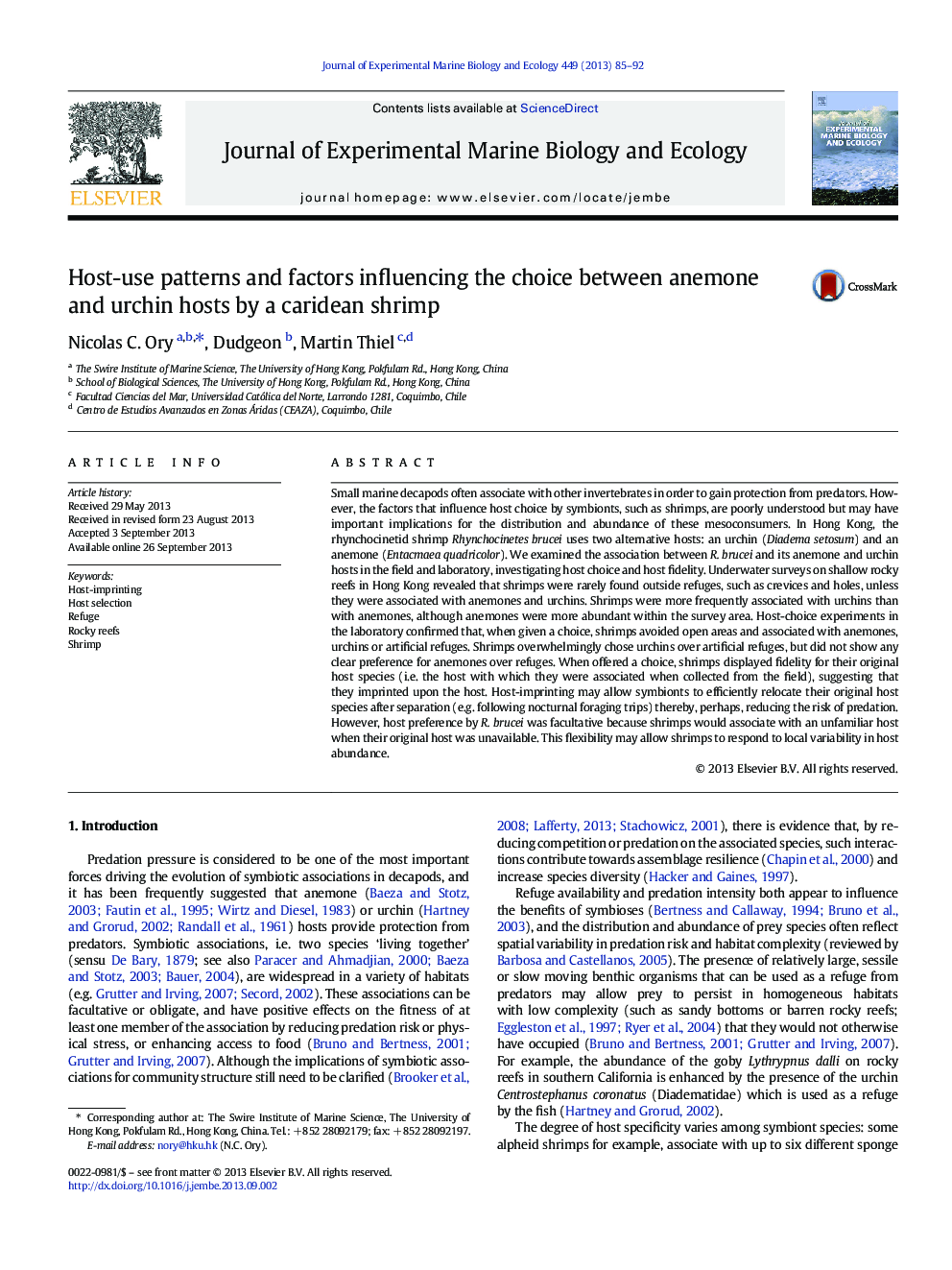| کد مقاله | کد نشریه | سال انتشار | مقاله انگلیسی | نسخه تمام متن |
|---|---|---|---|---|
| 6304257 | 1618426 | 2013 | 8 صفحه PDF | دانلود رایگان |
عنوان انگلیسی مقاله ISI
Host-use patterns and factors influencing the choice between anemone and urchin hosts by a caridean shrimp
ترجمه فارسی عنوان
الگوهای استفاده از میزبان و عوامل موثر بر انتخاب بین میزبان عنکبوت و یخ زده توسط میگو کارائید
دانلود مقاله + سفارش ترجمه
دانلود مقاله ISI انگلیسی
رایگان برای ایرانیان
کلمات کلیدی
میزبانی وب انتخاب میزبان، پناه، صخره های صخره ای، میگو،
موضوعات مرتبط
علوم زیستی و بیوفناوری
علوم کشاورزی و بیولوژیک
علوم آبزیان
چکیده انگلیسی
Small marine decapods often associate with other invertebrates in order to gain protection from predators. However, the factors that influence host choice by symbionts, such as shrimps, are poorly understood but may have important implications for the distribution and abundance of these mesoconsumers. In Hong Kong, the rhynchocinetid shrimp Rhynchocinetes brucei uses two alternative hosts: an urchin (Diadema setosum) and an anemone (Entacmaea quadricolor). We examined the association between R. brucei and its anemone and urchin hosts in the field and laboratory, investigating host choice and host fidelity. Underwater surveys on shallow rocky reefs in Hong Kong revealed that shrimps were rarely found outside refuges, such as crevices and holes, unless they were associated with anemones and urchins. Shrimps were more frequently associated with urchins than with anemones, although anemones were more abundant within the survey area. Host-choice experiments in the laboratory confirmed that, when given a choice, shrimps avoided open areas and associated with anemones, urchins or artificial refuges. Shrimps overwhelmingly chose urchins over artificial refuges, but did not show any clear preference for anemones over refuges. When offered a choice, shrimps displayed fidelity for their original host species (i.e. the host with which they were associated when collected from the field), suggesting that they imprinted upon the host. Host-imprinting may allow symbionts to efficiently relocate their original host species after separation (e.g. following nocturnal foraging trips) thereby, perhaps, reducing the risk of predation. However, host preference by R. brucei was facultative because shrimps would associate with an unfamiliar host when their original host was unavailable. This flexibility may allow shrimps to respond to local variability in host abundance.
ناشر
Database: Elsevier - ScienceDirect (ساینس دایرکت)
Journal: Journal of Experimental Marine Biology and Ecology - Volume 449, November 2013, Pages 85-92
Journal: Journal of Experimental Marine Biology and Ecology - Volume 449, November 2013, Pages 85-92
نویسندگان
Nicolas C. Ory, Dudgeon Dudgeon, Martin Thiel,
